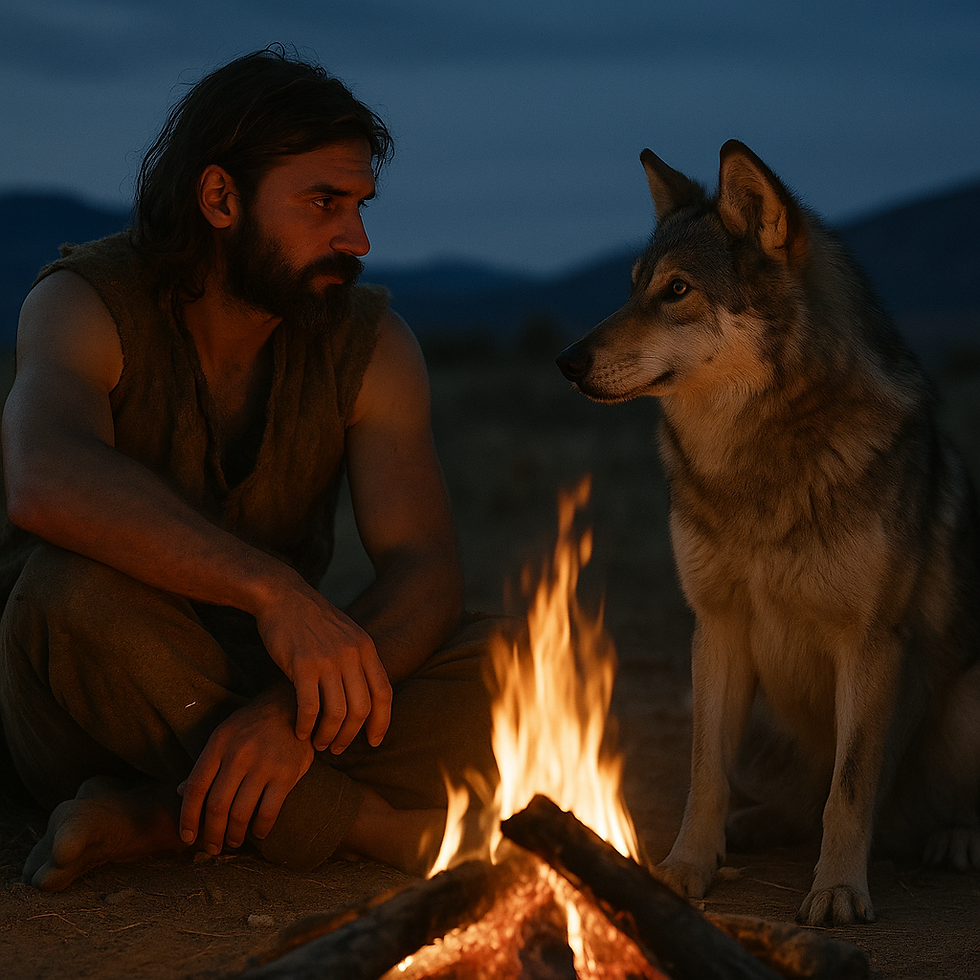Guardians of the Flock: How Herding Dogs and Livestock Guardian Dogs Built Civilization
- Sep 1, 2025
- 2 min read
Guardians of the Flock: How Dogs Made Farming Possible
When most people think about dog training today, they picture leash manners, reactivity training, or e-collar obedience work. But the truth is, none of this would exist without the very first jobs dogs ever had: protecting and controlling livestock. Without dogs, farming would have failed. Without farming, civilization never would have started.

Why Farming Needed Dogs
The first humans who tried to raise sheep, goats, and cows faced an impossible challenge. No fences. No barns. Just open pastures. Every night, wolves, bears, and big cats circled the edges of camp, waiting to kill.
Humans couldn’t guard every animal, every night, for generations. They needed another set of eyes, ears, and teeth. They needed dogs.
The Two Great Groups: Herding Dogs vs. Livestock Guardian Dogs
As farming spread, dogs split into two powerful groups with very different instincts:
1. Livestock Guardian Dogs (LGDs)

Big, strong, fearless protectors who live with the flock.
Their job: guard sheep and goats against predators 24/7.
They don’t chase or scatter sheep — they blend in with them.
Examples: Great Pyrenees, Anatolian Shepherd, Kangal, Caucasian Ovcharka, Gurdbasar from Azerbaijan.
True warriors bred for patience, courage, and defense.
2. Herding Dogs

Fast, intense, laser-focused workers.
Their job: move, control, and organize the flock.
They use “eye,” movement, and pressure to guide animals exactly where the handler wants.
Examples: Border Collies, Australian Shepherds, Kelpies, Corgis.
True strategists bred for intelligence, speed, and problem-solving.
Both groups are essential. Without guardians, the flock would be wiped out. Without herders, the flock would scatter. Together, they turned chaos into order — and made farming possible.
Dogs Made Civilization Possible
Think about what this means:
Guardian dogs gave humans the courage to keep animals overnight.
Herding dogs made large-scale farming manageable.
With food secured, humans could finally settle, build homes, and plan for the future.
Every loaf of bread, every glass of milk, every piece of cheese traces back to a dog’s instincts. Dogs didn’t just help us survive. They made civilization possible.
What We Owe Them

Today, people complain about barking, lunging, or destructive behavior. But those “problems” are just misdirected instincts. The same instincts that once defended villages and fed families.
Most owners don’t deserve their dogs. They expect calm obedience but provide no outlet for drives. They give treats but no purpose.
If you really want to do right by your dog:
Understand their group — guardian or herding.
Tailor training to their instincts, not against them.
Give structure, clarity, and work — whether through obedience training, reactivity rehab, scent games, or protection sports.
What’s Next
In the next blog, we’ll explore how dogs gave humans the safety to build houses, villages, and cities. And later, we’ll dive deeper into training: how to tailor dog training and management to these two powerful groups — herding dogs and livestock guardians — so their instincts become strengths, not frustrations.
.png)



Comments